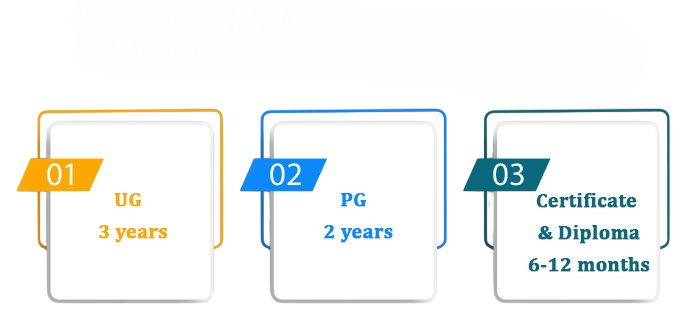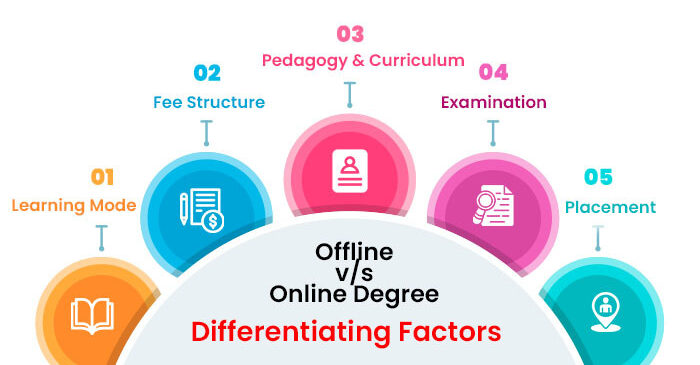
- Introduction to EV Industry
- Educational Pathways
- Core Subjects to Learn
- Skills Required
- Relevant Tools and Software
- Certifications in EV Technology
- Internships and Projects
- Specializations Within EV
- Industry Demands and Trends
- Job Roles Available
- Building a Strong Resume
- Continuous Learning and Growth
- Conclusion
Introduction to EV Industry
The Electric Vehicle (EV) industry is revolutionizing the way the world approaches transportation. With increasing global focus on sustainability, reducing carbon footprints, and government policies pushing for green alternatives, EVs have emerged as a dominant trend. Companies like Tesla, BYD, Tata Motors, and Hyundai are heavily investing in EVs, while traditional automotive electronics firms are transitioning their portfolios to include electric options. EVs include not only passenger cars but also two-wheelers, buses, commercial trucks, and even aircrafts. The EV ecosystem includes battery technology, electric drivetrain systems, power electronics, charging infrastructure, and software systems for energy management. The industry’s rapid growth offers immense electric vehicle engineering opportunities for engineers, IT professionals, designers, and management specialists.
Educational Pathways
- Undergraduate Programs: Bachelor’s degrees in Electrical Engineering, Mechanical Engineering, Electronics, Automobile Engineering, or Mechatronics are strong starting points.
- Postgraduate Studies: Specialized master’s programs in electric vehicle technology, Power Electronics, Renewable Energy, or Automotive Engineering.
- Diploma and Polytechnic Courses: Technical diplomas in EV maintenance, battery management, or automotive electronics systems.
- Certification Programs: Short-term courses focused on battery management systems (BMS), EV powertrains, charging infrastructure, or IoT in EVs.
- Top Institutions: IITs, NITs, and private universities offer EV-focused modules, while online platforms like Coursera, edX, and Udemy provide flexible learning for working professionals.
Do You Want to Learn More About Aptitute and reasoning? Get Info From Our Aptitute and reasoning certification Training Today!
Course Duration and Format
- Electrical Machines: Understanding motors (BLDC, PMSM, induction) used in EVs.
- Power Electronics: Learning about converters, inverters, and energy control systems.
- Battery Technology: Chemistry, charging cycles, thermal management, and energy density of lithium-ion batteries.
- Automotive Electronics: Embedded systems, CAN bus, ECU integration.
- Thermal Systems: Heat dissipation and thermal management strategies.
- Control Systems: Real-time control of motors, regenerative braking, and drive cycles.
- Renewable Energy Integration: Solar, wind, and energy storage solutions.

- Electrical Circuit Design: Ability to design and analyze EV circuits.
- Battery Modeling and Simulation: Skills in simulating battery performance and behavior.
- PCB Designing: Creating printed circuit boards for EV components.
- Motor Control Algorithms: Developing algorithms for efficient motor operation.
- Data Analysis Using MATLAB/Simulink: Analyzing EV data and system behavior.
- IoT Integration: Implementing IoT for EV monitoring and diagnostics.
Core Subjects to Learn
To build a career in EVs, students need to focus on both traditional engineering principles and emerging EV technologies:
- Electrical Machines: Understanding motors (BLDC, PMSM, induction) used in EVs.
- Power Electronics: Learning about converters, inverters, and energy control systems.
- Battery Technology: Chemistry, charging cycles, thermal management, and energy density of lithium-ion batteries.
- Automotive Electronics: Embedded systems, CAN bus, ECU integration.
- Thermal Systems: Heat dissipation and thermal management strategies.
- Control Systems: Real-time control of motors, regenerative braking, and drive cycles.
- Renewable Energy Integration: Solar, wind, and energy storage solutions.
A strong foundation in physics, mathematics, and computer science enhances your ability to grasp these concepts.
Would You Like to Know More About Aptitute and reasoning? Sign Up For Our Aptitute and reasoning certification Training Now!
Skills Required
Beyond academic knowledge, the EV sector demands a specific set of technical and soft skills:
-
Technical Skills:
- Electrical circuit design
- Battery modeling and simulation
- PCB designing
- Motor control algorithms
- Data analysis using MATLAB/Simulink
- IoT integration for EV monitoring Soft Skills:
- Critical thinking and problem-solving
- Effective communication
- Collaboration and teamwork
- Project management
- Adaptability and eagerness to learn
Cross-disciplinary competence blending mechanical, electrical, and software domains is highly valuable in the EV field.
Relevant Tools and Software
Relevant Tools and SoftwareHands-on knowledge of industry-relevant software enhances employability. Key tools include:
- MATLAB/Simulink – Modeling and simulation of EV systems
- Ansys – Thermal and structural analysis of EV components
- SolidWorks/AutoCAD – 3D design and prototyping
- LabVIEW – Testing and automation
- Python – Data analysis, battery diagnostics, AI applications
- LTspice and PSpice – Circuit simulation
- Altium Designer – PCB design
Familiarity with hardware platforms like Arduino, Raspberry Pi, or NI systems is also beneficial for prototyping.
Certifications in EV Technology
Certifications validate your skills and make your resume stand out. Notable certifications include:
- ISIE India’s EV Certification Programs
- Skill-Lync Electric Vehicle Design Course
- IIT Madras Electric Vehicles Course (NPTEL)
- SAE International EV Engineering Certifications
- EV Technician Certification – automotive electronics Training Centre
- Coursera’s EV specialization by University of Colorado Boulder
These courses cover battery management systems, hybrid electric vehicle technology, motor design, and EV safety, helping professionals specialize in niche areas.
Internships and Projects
Practical experience is key to transitioning from theoretical knowledge to real-world application. Internships offer industry exposure, while projects build confidence and a portfolio.
Internship Opportunities:- Automobile manufacturers (e.g., Tata, Mahindra, Hyundai)
- EV startups (e.g., Ola Electric, Ather Energy, Revolt Motors)
- Battery manufacturers (e.g., Exide, Amara Raja)
- Charging infrastructure companies Project Ideas:
- Design and simulate a battery pack
- Build a mini electric go-kart
- Develop a solar charging station prototype
- Analyze motor efficiency for different driving conditions
- Create an EV energy consumption app
- Battery Management Systems (BMS)
- Powertrain Design
- Thermal Management Systems
- Charging Infrastructure
- Embedded Systems & IoT
- EV Safety & Standards Compliance
- Autonomous and Connected EVs
- AI and Data Analytics in EV Performance
- government Incentives: Subsidies, tax rebates, and EV policies (e.g., FAME in India) are boosting adoption.
- Battery Innovation: Solid-state batteries and energy-dense chemistries are being researched.
- Charging electric vehicle technology: Faster charging, wireless charging, and battery swapping models are emerging.
- Smart Grids and V2G: Vehicle-to-grid integration and renewable energy integration adoption.
- Autonomous and Connected EVs: Integration of AI, ML, and 5G for smarter vehicles.
- Sustainability Focus: Circular economy and EV recycling technologies.
- Battery Systems Engineer
- Electric Powertrain Engineer
- Embedded Systems Developer
- EV Design Engineer
- Thermal Systems Engineer
- Motor Control Engineer
- Simulation & Testing Enginee Software Roles:
- EV Diagnostics Developer
- charging infrastructure Management Software Developer
- Vehicle Communication Systems Engineer Management and Support Roles:
- EV Product Manager
- Supply Chain Analyst
- Technical Sales Engineer
- Service Engineer for EVs
- Highlight certifications in EV and related technologies.
- Include hands-on projects and clearly describe your role and outcomes.
- Mention internships with reputed EV companies.
- List technical tools and software you are proficient in.
- Add achievements from competitions or workshops.
- Customize your resume for each job role using relevant keywords from job descriptions.
- Stay updated with industry news, blogs, and journals.
- Join professional networks like SAE, IEEE EV communities, or LinkedIn groups.
- Attend webinars, workshops, and international EV conferences.
- Take online refresher courses periodically.
- Explore cross-functional roles or managerial positions after gaining technical experience.
Colleges, competitions (like Formula Bharat, eBAJA), and hackathons provide platforms to showcase these projects.
Gain Your in Aptitude and reasoning Training by Enrolling in Our Aptitude and reasoning training Now!
Online vs On-Campus vs Part-time Programs
Both online and on-campus MSc in Data science training programs have their advantages:

Online Programs: Offer flexibility, allowing students to balance work and study. However, they may lack the hands-on opportunities and networking experiences available in on-campus programs.
On-Campus Programs: Provide a structured learning environment with opportunities for in-person interactions, hands-on labs, and direct access to faculty and industry experts. However, they may require relocation and full-time commitment.
Part-Time Programs: Students who wish to earn a master’s degree at a more manageable pace while still working. Promotes a better work-life balance while learning gives material absorption a more consistent, manageable pace.Depending on the demands, it can be pursued online or on campus but it requires more time to finish than a full-time programs, demands dedication and excellent organising abilities to balance study with other obligations can offer less chances for in-depth immersion than a programme that is offered full-time on campus.
Specializations Within EV
As the EV domain is multidisciplinary, professionals can specialize in areas aligned with their interests and strengths:
Preparing for Aptitude and reasoning Job? Have a Look at Our Blog on Aptitude and reasoning training To Acte Your Interview!
Industry Demands and Trends
The EV sector is rapidly evolving. Key industry trends include:
Global EV sales are expected to rise steadily, ensuring job stability and long-term growth prospects for professionals.
Job Roles Available
There is a wide variety of job roles in the EV domain, catering to engineering, management, IT, and design backgrounds:
Engineering Roles:Each of these roles has different requirements in terms of qualifications, skills, and certifications.
Building a Strong Resume
A strong resume is your gateway to landing interviews in the EV sector. Tips to build an impressive profile include:
Include a well-structured LinkedIn profile and GitHub repository with your projects to create a digital footprint.
Continuous Learning and Growth
The EV industry is still in its early stages of development, and rapid changes are expected in the coming years. Professionals must commit to lifelong learning:
Investing time in continuous learning not only future-proofs your electric vehicle engineering but also opens up global opportunities in research, entrepreneurship, and innovation.
Conclusion
A career in the EV industry is both exciting and impactful, contributing to a greener planet and sustainable mobility. With the right mix of education, skills, certifications, and hands-on experience, you can build a future-proof career in this booming Data science training. Whether you’re a student exploring options or a professional looking to pivot, now is the perfect time to plug into the world of electric vehicles.


